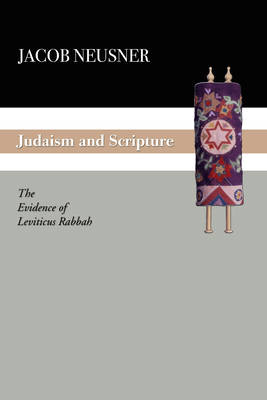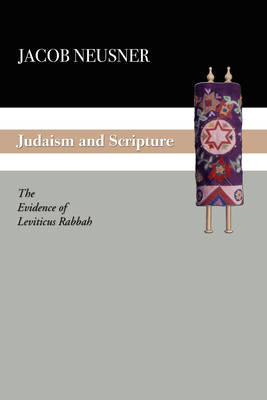
- Afhalen na 1 uur in een winkel met voorraad
- Gratis thuislevering in België vanaf € 30
- Ruim aanbod met 7 miljoen producten
- Afhalen na 1 uur in een winkel met voorraad
- Gratis thuislevering in België vanaf € 30
- Ruim aanbod met 7 miljoen producten
Zoeken
€ 130,45
+ 260 punten
Omschrijving
This groundbreaking work continues Jacob Neusner's multi-volume examination of the main texts of Judaism in its formative years. The first two parts of the project--'Judaism: The Evidence of the Yerushalmi'--examined the Mishnah and the Talmud of the Land of Israel and placed them in the social, intellectual, and religious contexts of their time. In 'Judaism and Scripture' Neusner moves from the study of ancient Judaism in society at large to an analysis of Rabbinic Judaism in relation to Scripture itself. Neusner accomplishes this both through close analysis and through the first English translation of the critical text of the Leviticus Rabbah. Tracing the relationship between the actual Book of Leviticus and its rabbinic commentary, Neusner asks how the rabbis who stand behind the text make use of Leviticus and how, through their comments on it, they make intelligible and comprehensible statements of their own. In answering these two questions Neusner shows, through a prime example, exactly how Scripture enters Judaism and how rabbis of the formative age of Judaism chose and taught the lessons they deemed critical to the life of Israel, the Jewish people.
Specificaties
Betrokkenen
- Auteur(s):
- Uitgeverij:
Inhoud
- Aantal bladzijden:
- 664
- Taal:
- Engels
Eigenschappen
- Productcode (EAN):
- 9781592443352
- Verschijningsdatum:
- 8/09/2003
- Uitvoering:
- Paperback
- Formaat:
- Trade paperback (VS)
- Afmetingen:
- 162 mm x 232 mm
- Gewicht:
- 966 g

Alleen bij Standaard Boekhandel
+ 260 punten op je klantenkaart van Standaard Boekhandel
Beoordelingen
We publiceren alleen reviews die voldoen aan de voorwaarden voor reviews. Bekijk onze voorwaarden voor reviews.











